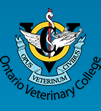From the Dean: Antimicrobial Resistance - The One Health Challenge of the Decade
Posted: October 31, 2016
It is hard to imagine a time without readily available effective antimicrobial therapy, but antibiotic discovery began in earnest only at the end of the Second World War, well within the memory of some of our senior citizens. From the start, we acknowledged that repeated exposure of microorganisms to antimicrobials would likely increase the selection pressure for resistance, and indeed this has happened quite quickly.
Today, there is remarkable consensus among governments, researchers, health professionals, food industries, and the public that we must take action to preserve the residual effectiveness of our current antimicrobials, and protect the utility of the few new antimicrobials coming on the market. We are seeing unprecedented activity to address this issue; in many ways this could be the One Health cause célèbre of the decade. But will we fully realize the potential of a “One Health approach” to this problem? So far we have not.
Since the majority of antimicrobial use in developed nations
is associated with food animal production, the stewardship of antimicrobials
will involve veterinarians directly. The profession has taken a leadership role
in promoting stewardship of antimicrobials, including their use in companion
animal practice. Human health professionals are taking the issue very seriously
also, but there needs to be far more dialogue between veterinarians,
physicians, researchers, farmers, and everyone involved with antibiotic use.
The 2014 Government of Canada report, Antimicrobial Resistance and Use in Canada A Federal Framework for Action set the scene for a coordinated multi-agency federal-provincial-territorial response to the threat of antimicrobial resistance (AMR).
Our veterinary educators and researchers have a central role in identifying and communicating innovative solutions to reduce AMR. Immunization, genomic enhancement of immunity, management innovations to reduce pathogen challenge, improved understanding of resistance and its development and spread, development of alternatives to antibiotics in animal husbandry – these are all areas of research represented at the OVC. We need to grasp this opportunity with both hands.
Last Friday, I met with the following Health Canada (HC) personnel: Pierre Sabourin, Associate Assistant Deputy Minister, Health Products & Food Branch; Mary Jane Ireland, Director General, and Manisha Mehrotra, Director, Veterinary Drugs Directorate (VDD). The AMR issue remains top priority for the federal government. The first phase of consultation on the Federal Framework has concluded. They are pleased with the across-the-board support for the framework. The degree of consensus will mean new federal regulations are imminent – likely to be rolled our within the next six months.
The VDD understands that there may be useful antimicrobials approved for use in livestock overseas but not in Canada, and continues to streamline drug approval in cooperation with other jurisdictions such as Australia and New Zealand. They would like help from us in identifying candidate drugs.
The VDD is also concerned with how all sectors will be educated, including producers and farm workers – veterinarians will be in the strong position to help with this aspect of stewardship.
An interesting byproduct of this activity is an increased need for young scientists to join the HC team: they are looking for one or two “really smart people” each year, just like our own Dr. Elise Tatone (Advisors Drs. Todd Duffield and Jessica Gordon) who defended her doctoral thesis last summer and has started in the VDD. They are very impressed with our graduates and this is an example of the excellent career opportunities for our graduates.
Researchers from the OVC have been critically involved understanding AMR in Canada and are active and highly respected globally and nationally for their work. We have every reason to see ourselves as world leaders in this campaign to reduce AMR.
The AMR challenge presents us with an opportunity to
operationalize and promote the One Health principles that are so well suited to
solving complex problems such as this. We must continue to gather
multi-disciplinary teams to find solutions that will assist our communities in
protecting the health of human and animal populations while exercising more
judicious use of antimicrobials.
I’m continuing to learn about the multiple dimensions of AMR, of the great work being done at OVC on the issue. Representing the Association of Colleges of Agriculture and Veterinary Medicine, I will be meeting again with government agencies in December and I would like to hear your ideas on how we can best help the federal government deliver on its stewardship and innovation priorities around AMR, and support the educational and other needs of agriculture and veterinarians as we grapple with this One Health challenge of the decade.
